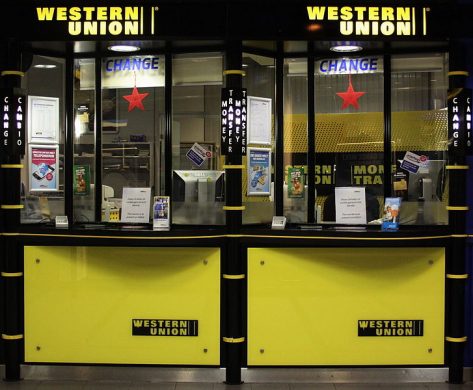Når en afrikansk gæstearbejder sender penge hjem til familien sker det ofte gennem et pengeoverførselsfirma. Her er der ikke meget konkurrence, så afsenderen kan komme til at betale 12 procent i gebyr – en tredjedel mere en verdensgennemsnittet.
LONDON, 22 April 2014 (IRIN): All over the world migrant workers are sending money home to their families. The money pays hospital bills and school fees, buys land, builds houses and sets up small businesses.
The cash goes from the US back to Mexico, from the Gulf back to India, from the UK back to Somalia, and from South Africa back to Malawi, Zimbabwe and the rest of southern Africa.
But what these workers probably do not realize, since they usually only ever send to one country, is that the cost of sending money varies greatly.
Now a study of the cost of remittances, carried out by London’s Overseas Development Institute (ODI) with support from the fund-raising charity Comic Relief, has revealed that transfers to African countries cost around half as much again as the global average, and twice as much as transfers to Latin America.
The ODI estimates that if remittance charges were brought down to the world average, the money saved could educate an extra 14 million primary school children, half of all those currently out of school on the continent.
The bulk of this money goes through money transfer companies rather than banks, since the recipients are unlikely to have bank accounts, and transfer companies are quick, efficient and have a wide network of agents.
Just two big companies
But just two big international players dominate the business in Africa, Moneygram and Western Union, and participants in a meeting to launch the research were highly critical of the way they seemed to be abusing their market dominance.
Rwanda’s High Commissioner in London, Williams Nkurunziza, said he was shocked at what the report revealed.
“If you look at the remittances, 30 or 40 percent of the money that goes to Africa goes to rural areas,” he said.
“This money goes to the people who are most needy, and you are allowing a multinational corporation to take bread out of the mouth of hungry children. This is not what I would call responsible capitalism!”
Glenys Kinnock, opposition spokesman on International Development in the upper house of the UK parliament, who chaired the meeting, called on the country’s financial regulatory authority to intervene over the issue of excessive charges.
“It is not a technocratic issue,” she said, “although it may sound like one. It is also about people’s lives and the future of their children… These things have to change. We can’t put up any longer with the prospect of its making things so difficult, very often impossible, for people who have such needs.”
At the end of last year, when the ODI did its research, the fees and charges to send money to most of Africa were around 12 percent – a bit less to Zambia or Tanzania, a bit more to Uganda, Malawi and the Gambia – against a world average of just over 8 percent. Even that is quite expensive; the governments of the G8 and G20 countries have pledged themselves to working towards reducing this to 5 percent.
It found that in more than 30 countries the two big players had more than 50 percent of the market; and in 10 countries they had more than 90 percent. Sometimes either Moneygram or Western Union had an effective monopoly, but even where both companies were present it did not necessarily mean that customers had much choice; one company could still have a monopoly of outlets in a particular area, and the companies habitually make their paying-out agents sign contracts promising not to also act as agents for their rivals.
Somalia different
Significantly, the one country where the big two are absent – Somalia – has far lower remittance charges; transfers go through a number of smaller, competing companies.
Competition has been limited by the fallout from the US “war on terror”, with the banks who do bulk international transfers citing money-laundering and anti-terrorism regulations as the reason they are reluctant to extend facilities to smaller companies. Now only the biggest of the Somali companies, Dahabshiil, still has an account with a major British bank (Barclays) and even that concession was forced by a court case and is only until other arrangements can be put in place.
Inter-Africa transfers cost most
Læs resten af artiklen: http://www.irinnews.org/report/99977/remittance-rip-offs















